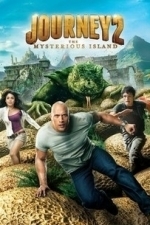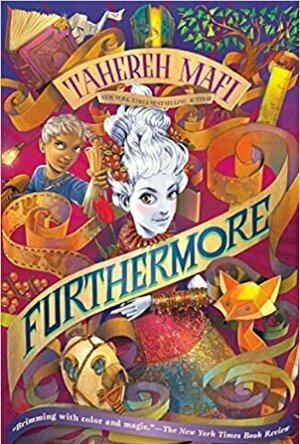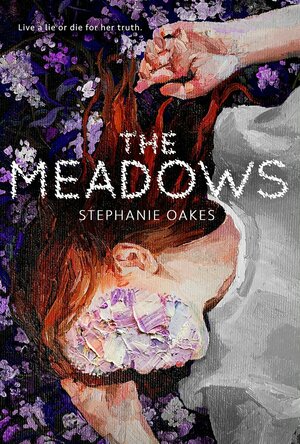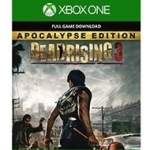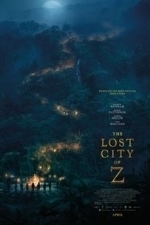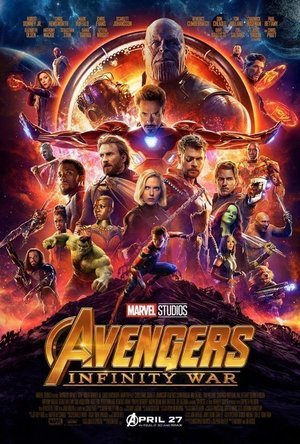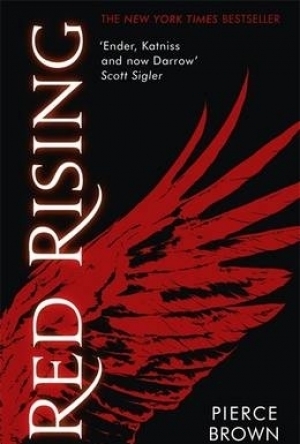Search
Search results
Gareth von Kallenbach (980 KP) rated Journey 2: The Mysterious Island (2012) in Movies
Aug 7, 2019
A follow up to the 2008, “Journey to the Center of the Earth,” here is another modern take on those beloved classic stories of the 19th century. “Journey 2: The Mysterious Island” is based on the idea that Jules Verne’s Mysterious Island, Jonathan Swift’s Gulliver’s Travels and Robert Louis Stevenson’s Treasure Island, are in fact the same island which really does exist.
The movie opens up with the return of Sean Anderson (Josh Hutcherson) getting caught by the police for climbing a satellite tower. To his chagrin, Josh is released into the custody of his stepfather Hank (Dwayne ‘The Rock’ Johnson), a former Navy man who wants nothing more than to be friends with his stepson. Sean’s reason for climbing the satellite tower was to get a hold of a satellite transmission code that he believes is the key to a message from his long-lost grandfather Alexander(Michael Caine).
Sean, with the help of Hank’s Navy expertise, attempts to decode the message which eventually leads them to the Mysterious Island. Along the way, the two hire a helicopter pilot Gabato (Luis Guzman), who provides the comedic relief and his daughter Kailani (Vanessa Hudgens) who, of course, is the eye candy and the romantic interest for Sean.
Upon arrival at the Mysterious Island, they locate Sean’s grandfather Alexander and they discover they must trek across the island, past a volcano that erupts gold leaves and run from dangerous creatures to find Captain Nemo’s ship. All before the island sinks!
You don’t have to be a “Vernian” to know what’s going on here. This movie was definitely geared toward a younger audience. The idea behind recreating Verne’s novels with a modern day twist was clever, however the execution was poor as the sequence of events didn’t flow from one scene to the next and the character relationships were not genuine at all. I must say, however the visual effects were stunning. as well as some of the action scenes which could have rivaled “Indiana Jones” or even “The Goonies” with just a bit more care and attention to detail.
The movie opens up with the return of Sean Anderson (Josh Hutcherson) getting caught by the police for climbing a satellite tower. To his chagrin, Josh is released into the custody of his stepfather Hank (Dwayne ‘The Rock’ Johnson), a former Navy man who wants nothing more than to be friends with his stepson. Sean’s reason for climbing the satellite tower was to get a hold of a satellite transmission code that he believes is the key to a message from his long-lost grandfather Alexander(Michael Caine).
Sean, with the help of Hank’s Navy expertise, attempts to decode the message which eventually leads them to the Mysterious Island. Along the way, the two hire a helicopter pilot Gabato (Luis Guzman), who provides the comedic relief and his daughter Kailani (Vanessa Hudgens) who, of course, is the eye candy and the romantic interest for Sean.
Upon arrival at the Mysterious Island, they locate Sean’s grandfather Alexander and they discover they must trek across the island, past a volcano that erupts gold leaves and run from dangerous creatures to find Captain Nemo’s ship. All before the island sinks!
You don’t have to be a “Vernian” to know what’s going on here. This movie was definitely geared toward a younger audience. The idea behind recreating Verne’s novels with a modern day twist was clever, however the execution was poor as the sequence of events didn’t flow from one scene to the next and the character relationships were not genuine at all. I must say, however the visual effects were stunning. as well as some of the action scenes which could have rivaled “Indiana Jones” or even “The Goonies” with just a bit more care and attention to detail.
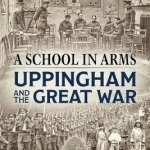
A School in Arms: Uppingham and the Great War
Book
For many people, their only knowledge of Uppingham's involvement in the Great War is through Vera...
Kristina (502 KP) rated Furthermore (Furthermore, #1) in Books
Dec 7, 2020
"I don't hate it, I don't love it. I don't like the writing style, I don't dislike the writing style. I'm not sure if I like it, but I can't seem to stop reading it. I'm very confused. Also, this book is giving me huge 'Alice in Wonderland' vibes!"
As you can see from the update I have copied and pasted, I wasn't quite sure what to think of Furthermore. In fact, I felt a bit like Alice, lost and confused, a bit stiff in what I like to read. I'm not certain if I should give Furthermore 3 stars or 4 stars; then again, I also wonder if I should give it 2 stars. I have never, in all my life, been so confounded. Even now, after having finished it and trying to come up with a review three days later, I'm left speechless. It wasn't "edge of your seat" exciting or "page turning" mysterious, but there's just something about the story that makes me refuse to say I didn't like it - even if I'm not quite sure I did. The story as a whole was pretty entertaining, though there moments I felt just as confused as Alice was and I didn't quite appreciate that (of course, that was most likely Tahereh's point). I would promise myself to stop at the next chapter, because as I read it, I wanted to stop. Yet, when the next chapter would come, I found myself unable to quit. I suppose you could say the magic of Furthermore wrapped itself around me and compelled me to finish the book.
Because I have never had such a reaction to a book before - and because I was actually excited at the prospect that there may be another book, what with the way this one ended - I think I'm going to give it a 3.5 rating. Because of my doubt, uncertainty, and unwillingness to decide if I truly liked it or not, I can't give it 4 stars. So, there you have it. Do what you can with the mess that lives inside my brain whenever I try to figure Furthermore out.
As you can see from the update I have copied and pasted, I wasn't quite sure what to think of Furthermore. In fact, I felt a bit like Alice, lost and confused, a bit stiff in what I like to read. I'm not certain if I should give Furthermore 3 stars or 4 stars; then again, I also wonder if I should give it 2 stars. I have never, in all my life, been so confounded. Even now, after having finished it and trying to come up with a review three days later, I'm left speechless. It wasn't "edge of your seat" exciting or "page turning" mysterious, but there's just something about the story that makes me refuse to say I didn't like it - even if I'm not quite sure I did. The story as a whole was pretty entertaining, though there moments I felt just as confused as Alice was and I didn't quite appreciate that (of course, that was most likely Tahereh's point). I would promise myself to stop at the next chapter, because as I read it, I wanted to stop. Yet, when the next chapter would come, I found myself unable to quit. I suppose you could say the magic of Furthermore wrapped itself around me and compelled me to finish the book.
Because I have never had such a reaction to a book before - and because I was actually excited at the prospect that there may be another book, what with the way this one ended - I think I'm going to give it a 3.5 rating. Because of my doubt, uncertainty, and unwillingness to decide if I truly liked it or not, I can't give it 4 stars. So, there you have it. Do what you can with the mess that lives inside my brain whenever I try to figure Furthermore out.
Ali A (82 KP) rated The Meadows in Books
Sep 11, 2023
Trigger Warnings: conversion therapy, homophobia
Every youth hopes to get a letter to attend one of the places where only the best and brightest go to be even better and brighter: the Estuary, the Glades, the Meadows…
When Eleanor is accepted to go to the Meadows, it means her escape from the Cove and a hard life by the sea. But, though the Meadows is filled with beautiful and wonderful things, it hoards dark secrets: its purpose is to reform its students from their attractions, to show them that the way of life is only possible through their way. Maybe Eleanor starts to believe, but then she meets Rose, and everything changes.
A year after leaving the Meadows, Eleanor and her friends are on the outside, living back in society - but not everything is as they hoped. Eleanor is an adjudicator, someone who makes sure former students haven’t strayed from the lives they were trained to live. But the past isn’t letting go of Eleanor and as secrets unravel, Eleanor must fight against everything she has been taught to be, especially if she can find the girl that she lost.
I originally was interested in this title when I saw it on BookishFirst because it was being marketed as “a queer, YA Handmaid's Tale meets Never Let Me Go” and I was all about that. I also love a good dystopian novel so this was really right up my alley.
That being said, I absolutely loved and devoured this novel over the course of the weekend when I didn’t have the interruption of work. The world building is intriguing and the “perfect” society is everything but (aren’t they all). The characters were also complex and engrossing - even the ones I wasn’t the biggest fans of, I still wanted them to succeed.
I absolutely recommend this book to those not only those who love dystopian novels, but those who want a page turning science fiction with queer characters.
*Thank you Dial Books and BookishFirst for an ARC copy of this book in exchange for an honest review
Every youth hopes to get a letter to attend one of the places where only the best and brightest go to be even better and brighter: the Estuary, the Glades, the Meadows…
When Eleanor is accepted to go to the Meadows, it means her escape from the Cove and a hard life by the sea. But, though the Meadows is filled with beautiful and wonderful things, it hoards dark secrets: its purpose is to reform its students from their attractions, to show them that the way of life is only possible through their way. Maybe Eleanor starts to believe, but then she meets Rose, and everything changes.
A year after leaving the Meadows, Eleanor and her friends are on the outside, living back in society - but not everything is as they hoped. Eleanor is an adjudicator, someone who makes sure former students haven’t strayed from the lives they were trained to live. But the past isn’t letting go of Eleanor and as secrets unravel, Eleanor must fight against everything she has been taught to be, especially if she can find the girl that she lost.
I originally was interested in this title when I saw it on BookishFirst because it was being marketed as “a queer, YA Handmaid's Tale meets Never Let Me Go” and I was all about that. I also love a good dystopian novel so this was really right up my alley.
That being said, I absolutely loved and devoured this novel over the course of the weekend when I didn’t have the interruption of work. The world building is intriguing and the “perfect” society is everything but (aren’t they all). The characters were also complex and engrossing - even the ones I wasn’t the biggest fans of, I still wanted them to succeed.
I absolutely recommend this book to those not only those who love dystopian novels, but those who want a page turning science fiction with queer characters.
*Thank you Dial Books and BookishFirst for an ARC copy of this book in exchange for an honest review
Gareth von Kallenbach (980 KP) rated Dead Rising 3: Apocalypse Edition in Video Games
Jun 19, 2019
When I first learned that Dead Rising 3 would be coming to PC in an
Apocalypse edition, I was thrilled. I have not been one eager to jump on
the Xbox One bandwagon and prefer to play my games on PC.
Having enjoyed the first two games in the series, I eagerly loaded up the
game and jumped into a casual co-op game where a fellow gamer and I worked
our way through levels teaming with hordes of the undead.
Like the other games in the series, I was able to use various vehicles to
run down and force my way through the hordes and of course, anything on
the very big and detailed maps can become a weapon, while there are guns,
grenades, swords, and traditional weapons, players will also find teddy
bears, hubcaps, laptops, bricks, and countless other goodies to ward off
being the main course at a Zombie Buffet.
Players will also be able to gather items and plans so they can easily
craft weapons such as a combination power saw and sledgehammer which makes
short work of all those in your path.
Like the previous games, missions are assigned and cut scenes are used to
move the story along as players often have to locate and return various
items for characters so they will do something for you in return that
allows you to advance.
Having played both in solo mode and with a flesh and blood player, I can
tell you that I greatly prefer having another player on hand as they can
help you fight, navigate, and survive, which is key as there is not always
a helpful amount of food or drink around to help you replenish lost
health.
Since players can only manage a few weapons at a time in their inventory
and Items do destruct after a certain amount of use, being on the lookout
for the next weapon is key as I have been in extended fights when my
options ran dry and I was forced to run.
Graphically the game is solid but not what I would call cutting edge. My
biggest issue with the game was that due to the huge and frequent hordes,
there were times when I lagged almost to a standstill which was not
something that helped enhance my enjoyment of the game.
That being said, the variety of gameplay and the story of the game that
clearly let you know the clock was ticking on your window for survival
really added a sense of urgency to the game.
I enjoyed the free form variety of the game such as taking a muscle car
and executing a flip off of a ramp into a wall of fire to take down a
Zombie that was clinging to the car. Some would call this overkill, but
that is simply how I roll.
From multiple game modes to plenty of in game options, Dead Rising 3 is
tons of fun, now if only they could do something about the in game lag, we
would really have a winner, as it is now, it is a good game that could
have been great on PC.
http://sknr.net/2014/09/15/dead-rising-3-apocalypse-edition/
Apocalypse edition, I was thrilled. I have not been one eager to jump on
the Xbox One bandwagon and prefer to play my games on PC.
Having enjoyed the first two games in the series, I eagerly loaded up the
game and jumped into a casual co-op game where a fellow gamer and I worked
our way through levels teaming with hordes of the undead.
Like the other games in the series, I was able to use various vehicles to
run down and force my way through the hordes and of course, anything on
the very big and detailed maps can become a weapon, while there are guns,
grenades, swords, and traditional weapons, players will also find teddy
bears, hubcaps, laptops, bricks, and countless other goodies to ward off
being the main course at a Zombie Buffet.
Players will also be able to gather items and plans so they can easily
craft weapons such as a combination power saw and sledgehammer which makes
short work of all those in your path.
Like the previous games, missions are assigned and cut scenes are used to
move the story along as players often have to locate and return various
items for characters so they will do something for you in return that
allows you to advance.
Having played both in solo mode and with a flesh and blood player, I can
tell you that I greatly prefer having another player on hand as they can
help you fight, navigate, and survive, which is key as there is not always
a helpful amount of food or drink around to help you replenish lost
health.
Since players can only manage a few weapons at a time in their inventory
and Items do destruct after a certain amount of use, being on the lookout
for the next weapon is key as I have been in extended fights when my
options ran dry and I was forced to run.
Graphically the game is solid but not what I would call cutting edge. My
biggest issue with the game was that due to the huge and frequent hordes,
there were times when I lagged almost to a standstill which was not
something that helped enhance my enjoyment of the game.
That being said, the variety of gameplay and the story of the game that
clearly let you know the clock was ticking on your window for survival
really added a sense of urgency to the game.
I enjoyed the free form variety of the game such as taking a muscle car
and executing a flip off of a ramp into a wall of fire to take down a
Zombie that was clinging to the car. Some would call this overkill, but
that is simply how I roll.
From multiple game modes to plenty of in game options, Dead Rising 3 is
tons of fun, now if only they could do something about the in game lag, we
would really have a winner, as it is now, it is a good game that could
have been great on PC.
http://sknr.net/2014/09/15/dead-rising-3-apocalypse-edition/
Gareth von Kallenbach (980 KP) rated The Lost City of Z (2017) in Movies
Jul 11, 2019
Charlie Hunnam (Sons of Anarchy) stars as the British Explorer Colonel Percival Fawcett, who disappeared on an expedition in search of an ancient city and civilization in the Amazon. The film centers on the true-life adventure of Col Fawcett and his journey to find evidence of a lost people while engaging audiences in the ego and superiority complex that much of western civilization finds itself.
We are introduced to Fawcett as he is an Army Major who seeks to have some sense of distinction and recognition. Seeking notoriety and a sense of honor, Fawcett accepts the task of mapping out disputed territory between Peru and Brazil at the opening of the 20th century in order to prevent war between the two nations.
In his exploits, he is confronted with the exploitation of the indigenous population, extraction of resources, and an untamed land. Upon subsequent journeys and serving in World War I, he is consumed with the need to find a sense of honor in his duty to his nation. Over the course of the film, we begin to see how invested he is in this struggle to learn more about the people and places that he is exploring, however, there isn’t a true connection made between Hunnam’s portrayal and the audience. At times, I found myself not caring about Fawcett’s contributions or career. I could not get invested in his story or his struggle to find a lost city that he believed existed in the wild. By the end of the film, I wasn’t invested in who Fawcett was, what he set out to accomplish, or even his legacy.
One thing that I did find remarkable was that the film helps to expose much of the anxiety and danger that existed during this period and previous expeditions into the region. Additionally, it gave me an appreciation for the endless heights of the human ego, ambition, and drive. The film allows for a critique to emerge about western interference and exploration of the region and the ethnocentrism held by western nations. Lost City of Z is an expansive visual spectacle. The jungle becomes a living, breathing, creature that audiences will connect with, become fearful of, and appreciate. It is the character that carries the film.
The actors and actresses are the background. This aspect allows for the audience to become absorbed by the surroundings and the environment that the characters find themselves in.
The film is beautifully shot and captivating. The sequences are engaging and give the sense of being transported to a foreign, mysterious land that holds secrets that many of us could never comprehend or witness with our own eyes.
We are introduced to Fawcett as he is an Army Major who seeks to have some sense of distinction and recognition. Seeking notoriety and a sense of honor, Fawcett accepts the task of mapping out disputed territory between Peru and Brazil at the opening of the 20th century in order to prevent war between the two nations.
In his exploits, he is confronted with the exploitation of the indigenous population, extraction of resources, and an untamed land. Upon subsequent journeys and serving in World War I, he is consumed with the need to find a sense of honor in his duty to his nation. Over the course of the film, we begin to see how invested he is in this struggle to learn more about the people and places that he is exploring, however, there isn’t a true connection made between Hunnam’s portrayal and the audience. At times, I found myself not caring about Fawcett’s contributions or career. I could not get invested in his story or his struggle to find a lost city that he believed existed in the wild. By the end of the film, I wasn’t invested in who Fawcett was, what he set out to accomplish, or even his legacy.
One thing that I did find remarkable was that the film helps to expose much of the anxiety and danger that existed during this period and previous expeditions into the region. Additionally, it gave me an appreciation for the endless heights of the human ego, ambition, and drive. The film allows for a critique to emerge about western interference and exploration of the region and the ethnocentrism held by western nations. Lost City of Z is an expansive visual spectacle. The jungle becomes a living, breathing, creature that audiences will connect with, become fearful of, and appreciate. It is the character that carries the film.
The actors and actresses are the background. This aspect allows for the audience to become absorbed by the surroundings and the environment that the characters find themselves in.
The film is beautifully shot and captivating. The sequences are engaging and give the sense of being transported to a foreign, mysterious land that holds secrets that many of us could never comprehend or witness with our own eyes.

FoneHome - A Phone Tracker to Find and Locate Your Lost or Stolen Device
Utilities and Navigation
App
Never lose your phone again! FoneHome is the best and most comprehensive solution for tracking your...
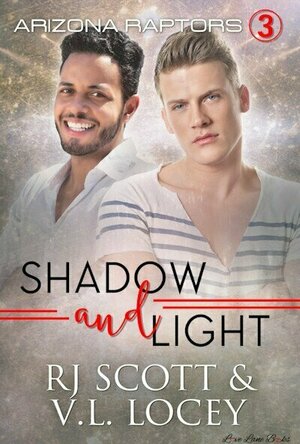
Shadow and Light (Arizona Raptors #3)
RJ Scott and V.L. Locey
Book
Is it easier to fall into the shadows than hold onto the light? Injured in a horrific car...
Contemporary MM Sports Romance
Connor Sheffield (293 KP) rated Avengers: Infinity War (2018) in Movies
Apr 28, 2018 (Updated Apr 30, 2018)
Great Action (as always) (3 more)
Incredible visuals
Brilliant cast
A f*ck fest of emotions
Not as impactful (2 more)
Another film that seems to happen too fast
A f*ck fest of emotions
10 years in the making
Contains spoilers, click to show
As stated this review contains spoilers so leave now lest ye want to ruin the film!
So this films has been everything marvel has been building towards for the past decade and that in itself is truly incredible and whilst I am not as big a Marvel fan as I am DC, I can honestly say I have loved every step of the way. The films only got better with each wave of the universe and there have been some true masterpieces, Superior to the DC cinematic universe for it's continuity and it's structure, I am not afraid to admit that or foolish enough to deny that.
However at the time of writing this I have literally just come out of the screening of Avengers: Infinity War and I have to say I was impressed but also slightly disappointed. Here's why...
I was impressed with the performances, and everything that has connected the Marvel cinematic universe up to this point and the cast portray that history incredibly well. You can really tell that these characters have had all this history and even the newer cast like Black Panther, fit well into that history and the overall atmosphere of the universe.
Brolin was incredible as Thanos and the writers did something unexpected with his character that really makes the audience think about his intentions.
However, the overall impact of the film was a little lost on me and possibly me alone, for the simple reason that it all happens so fast. There's a lot of action, a lot of laughs and a lot of serious impact moments, but without spoiling names, the loss of characters in this film didn't impact me as much as I'd hoped.
But here's why that might just be me, and it really comes down to 3 words:
Comic Book Movie
No matter how hard I try, I can't escape that when I watch these films. They are comic book movies and we already know a lot of these characters have more movies to go. So I know that no matter what will happen, it will all work out one way or another in the end you'll lose some characters but will they really be gone gone, or will we see them in another film, or at least hear about them in another film.
It's not because I'm a DC fanboy or anything cos honestly I know I'd feel this way about any comic book movie. It's just not something I can seem to grasp when it comes to my feelings towards comic book movies. The whole "they made comic characters feel real and live in our reality" I get to a certain extent but that doesn't mean I'll walk out of a movie in tears over the death of even my favourite comic book character if it were to happen. Some films have that impact on me, I'm not a robot, but comic book films just don't seem to work for me when it comes to that true emotions of loss. But as I said that's just me. I was hoping infinity war would change that cos I knew this was a biggy, but sadly it didn't quite happen. It came close with certain scenes. But not quite.
So overall I give it 9/10 because it was a brilliant film. Without a doubt ONE OF the best comic movies, not the best, but certainly one of.
So this films has been everything marvel has been building towards for the past decade and that in itself is truly incredible and whilst I am not as big a Marvel fan as I am DC, I can honestly say I have loved every step of the way. The films only got better with each wave of the universe and there have been some true masterpieces, Superior to the DC cinematic universe for it's continuity and it's structure, I am not afraid to admit that or foolish enough to deny that.
However at the time of writing this I have literally just come out of the screening of Avengers: Infinity War and I have to say I was impressed but also slightly disappointed. Here's why...
I was impressed with the performances, and everything that has connected the Marvel cinematic universe up to this point and the cast portray that history incredibly well. You can really tell that these characters have had all this history and even the newer cast like Black Panther, fit well into that history and the overall atmosphere of the universe.
Brolin was incredible as Thanos and the writers did something unexpected with his character that really makes the audience think about his intentions.
However, the overall impact of the film was a little lost on me and possibly me alone, for the simple reason that it all happens so fast. There's a lot of action, a lot of laughs and a lot of serious impact moments, but without spoiling names, the loss of characters in this film didn't impact me as much as I'd hoped.
But here's why that might just be me, and it really comes down to 3 words:
Comic Book Movie
No matter how hard I try, I can't escape that when I watch these films. They are comic book movies and we already know a lot of these characters have more movies to go. So I know that no matter what will happen, it will all work out one way or another in the end you'll lose some characters but will they really be gone gone, or will we see them in another film, or at least hear about them in another film.
It's not because I'm a DC fanboy or anything cos honestly I know I'd feel this way about any comic book movie. It's just not something I can seem to grasp when it comes to my feelings towards comic book movies. The whole "they made comic characters feel real and live in our reality" I get to a certain extent but that doesn't mean I'll walk out of a movie in tears over the death of even my favourite comic book character if it were to happen. Some films have that impact on me, I'm not a robot, but comic book films just don't seem to work for me when it comes to that true emotions of loss. But as I said that's just me. I was hoping infinity war would change that cos I knew this was a biggy, but sadly it didn't quite happen. It came close with certain scenes. But not quite.
So overall I give it 9/10 because it was a brilliant film. Without a doubt ONE OF the best comic movies, not the best, but certainly one of.
Natacha (374 KP) rated Red Rising in Books
Jan 23, 2020
More reviews on my blog: https://natachainreviewland.wordpress.com/
Red Rising is another book that I struggle to rate. I did enjoy the book but it didn't blow my mind. I think it's just an "It's not you, it's me" kind of situation. For the best part of the story, I felt like I was reading a retelling of the Hunger Games (and it was a movie I felt it was just ok, haven't read the books) and mixed with The Punisher (guys loses his wife and needs to get his revenge). I had fun but that's all.
Things I liked:
-The writing was very good. Simple, clear, just the right amount of information and exposition to make us understand the world and characters.
-We have a cast of charters with different and distinct personalities and well fleshed out.
-I really enjoyed the fourth part of the book. At this point, I felt like it lost the Hunger Game vibe. We don't have just one person that needs to take down the system but a whole army that marches against corruption.
-Towards the end, we had two nice twists. One of them had been foreshadowed for a while and the second one I personally saw it coming. Although to be honest when you have 20 pages left you can guess that things will go in a different direction what the author is making you believe. Despite that, I really liked those twists.
-I really like Darrow and Mustang dynamic and relationship. I thought it was well done and it felt natural.
-Now that the Huger Game part of the story is done I'm curious to see what Darrow will do outside in the world and how his plan will unfold.
Things I didn't like
I don't have many negatives. There was nothing wrong with the story but I'll try to point some aspect that bothered me.
-As I mention I didn't care about Hunger Game and throughout a large part of the story I couldn't help but thinking of the similarities.
-I'm a little tired of the "They kill my wife and I need to get revenge and keep her dream alive" trope.
-The story is written in first-person POV and present tense and this is really my least favourite way to tell a story.
-I feel like Darrow is a little bit of a Gary Stu. On so many occasion we have Darrow say things like "I'm stronger, I'm taller, I'm faster than he/she, I know better than them" etc. This is why I don't like first-person POV. When it's the author or another person telling us that the main character is stronger or taller or whatever it feels like an observation. When we have the main character telling us about the fact that they are better than everyone else, for me, they become across as obnoxious and annoying. And because of that, I struggle to really connect with Darrow.
-Rape is used a couple of times to move the plot forward. I don't mind when it's used once but when it's used again and again it feels like the author didn't know what else to do to get the plot going.
So here you have it. It wasn't a bad book there was nothing wrong with it and I understand why so many people rave about it. But personally, I couldn't get into the "this is a great book" place. I'm curious about the rest of the series, I don't feel the need to start right away like with other series, but I will get to the second book eventually.
Red Rising is another book that I struggle to rate. I did enjoy the book but it didn't blow my mind. I think it's just an "It's not you, it's me" kind of situation. For the best part of the story, I felt like I was reading a retelling of the Hunger Games (and it was a movie I felt it was just ok, haven't read the books) and mixed with The Punisher (guys loses his wife and needs to get his revenge). I had fun but that's all.
Things I liked:
-The writing was very good. Simple, clear, just the right amount of information and exposition to make us understand the world and characters.
-We have a cast of charters with different and distinct personalities and well fleshed out.
-I really enjoyed the fourth part of the book. At this point, I felt like it lost the Hunger Game vibe. We don't have just one person that needs to take down the system but a whole army that marches against corruption.
-Towards the end, we had two nice twists. One of them had been foreshadowed for a while and the second one I personally saw it coming. Although to be honest when you have 20 pages left you can guess that things will go in a different direction what the author is making you believe. Despite that, I really liked those twists.
-I really like Darrow and Mustang dynamic and relationship. I thought it was well done and it felt natural.
-Now that the Huger Game part of the story is done I'm curious to see what Darrow will do outside in the world and how his plan will unfold.
Things I didn't like
I don't have many negatives. There was nothing wrong with the story but I'll try to point some aspect that bothered me.
-As I mention I didn't care about Hunger Game and throughout a large part of the story I couldn't help but thinking of the similarities.
-I'm a little tired of the "They kill my wife and I need to get revenge and keep her dream alive" trope.
-The story is written in first-person POV and present tense and this is really my least favourite way to tell a story.
-I feel like Darrow is a little bit of a Gary Stu. On so many occasion we have Darrow say things like "I'm stronger, I'm taller, I'm faster than he/she, I know better than them" etc. This is why I don't like first-person POV. When it's the author or another person telling us that the main character is stronger or taller or whatever it feels like an observation. When we have the main character telling us about the fact that they are better than everyone else, for me, they become across as obnoxious and annoying. And because of that, I struggle to really connect with Darrow.
-Rape is used a couple of times to move the plot forward. I don't mind when it's used once but when it's used again and again it feels like the author didn't know what else to do to get the plot going.
So here you have it. It wasn't a bad book there was nothing wrong with it and I understand why so many people rave about it. But personally, I couldn't get into the "this is a great book" place. I'm curious about the rest of the series, I don't feel the need to start right away like with other series, but I will get to the second book eventually.
